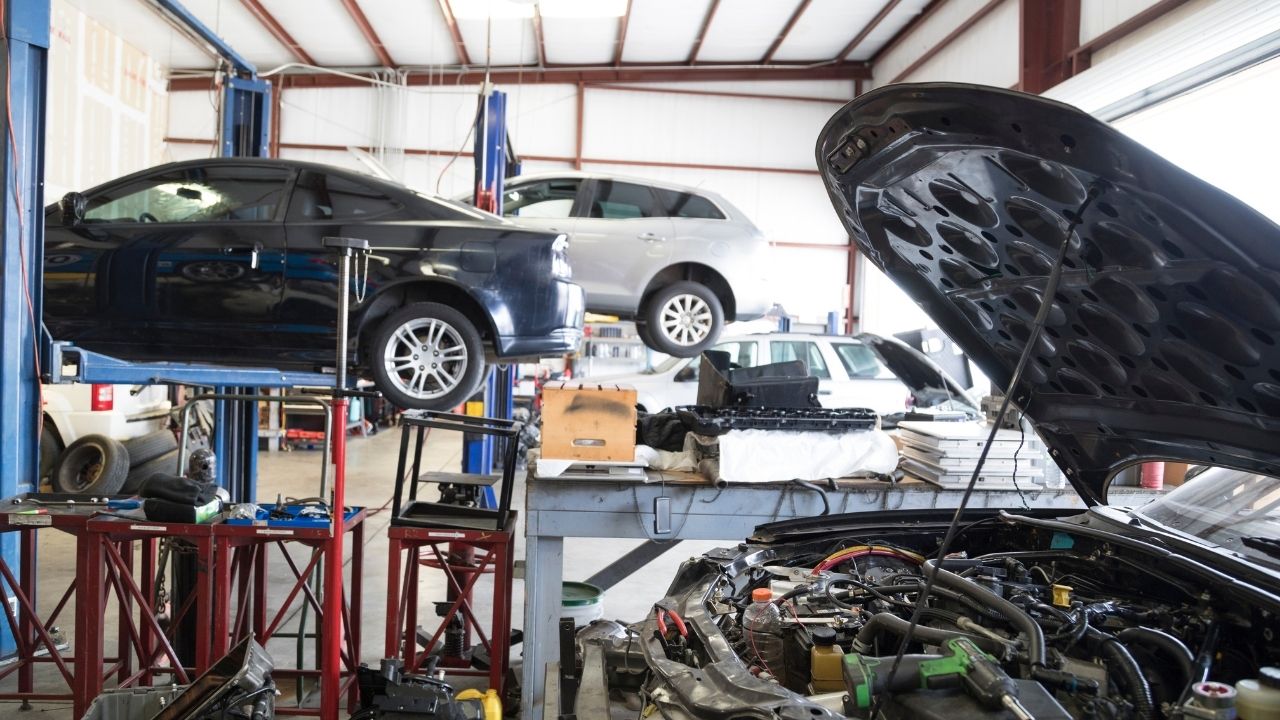When starting a career as an auto or diesel technician, you might gain a general sense of the field through YouTube videos, blogs, and podcasts. However, these resources only scratch the surface. With 79% of technicians having considered leaving the industry, it’s clear people who are interested in pursuing a career as a technician need a deeper level of understanding of how the industry works.
Just as there are unspoken rules in the shop, there are aspects of the industry that aren’t commonly discussed. To provide more insight, we reached out to our network of technicians for the advice they wish they had received when starting their careers.
13 Lessons Mechanics Wish They’d Known Before Starting Their Career
1. Do Your Training
In order to improve and advance in any career, you need to constantly focus on training. Nobody is an expert at fixing cars right away, and it takes time to learn. Training should be done both internally through the shop and externally outside of the shop. If you work at a shop that isn’t providing training, try to find training on your own. Being an automotive technician isn’t a profession you go to school for once and you’re set for your entire career. There are always new skills to learn and certifications to gain from the first day you step into a shop all the way to the last.
“To avoid being stagnant, you must Learn from a credible, caring mentor. Study like there’s no tomorrow from credible sources like ScannerDanner.”
Hunter Jackson, ASE L1 Master Certified Technician
2. Know Your Worth
Technicians are smart individuals and need to be recognized for their intelligence. It is no longer the greasy and dirty field it used to be. Vehicles today are changing by the minute with the advancements in technology. As a technician, it is important to understand your own worth when looking for a shop to work at. You deserve support, appreciation, fair compensation, and competent benefits. Find a shop that acknowledges your intelligence and appreciates the work you do.
3. Different Types of Shops
Not everyone likes to work for the same type of shop. Some technicians prefer to work for dealerships. Dealerships allow technicians to work on one specific brand of cars and become experts on that brand. Other technicians prefer small independent shops. At independent shops, technicians work on many different types of cars. As a technician early in your career, it’s important to discover which type of shop you like best, and where you will be the most successful.
4. It’s Hard Work, But Rewarding
It can take time, but in the end, it is a great feeling to solve a problem someone is struggling with. This job can be very tough both physically and mentally. Most technicians get a thrill from solving the problems most people can’t. It makes you feel very accomplished and proud of the work you are doing. It is definitely not easy work, but the look on the customer’s face when you finally finish a big job makes it all worth it.
5. It Can Be Expensive
The tools technicians have to pay for are extremely pricey. You may also have to pay for other things, including a toolbox, uniform, etc. Some shops will provide specialty tools, or have a tool allowance, but most require technicians to purchase the majority of their tools. As an entry-level technician, it is important to not stress out and buy all your tools at once. If you can, come up with a budget and plan. This will allow you to steadily grow your tool collection without killing your bank account.
6. You Don’t Need Expensive Tools
We know being an automotive technician comes with its costs and can be an expensive career. Don’t be afraid to purchase off-brand or older tools from pawn shops. This job already comes with a lot of expenses. It’s important to know you don’t need to get the fanciest and newest tools. Older and off-brand tools work just as well and can save you a lot of money in the long run.
7. Networking
Build connections with people across the automotive industry—not just the technicians in your own shop, but those from various locations. The internet provides opportunities to engage with technicians nationwide through Facebook groups, online forums, WrenchWay Shop Talk, and LinkedIn.
Participate actively and take pride in your career. As James McGovern, Equipment Maintenance Manager, explains, “You must make a personal commitment to improve and grow to be successful; nothing will be handed to you.” By networking and exploring these connections on your own, you might discover new interests and opportunities within the industry.
8. Communication Skills
Many young technicians don’t realize they’ll need to interact with customers throughout their careers. Some customers like to speak directly with the technician about what is wrong with their car. Sometimes you’ll have to interact with customers who may not always be in the best mood or entirely understand what you’re talking about. It is important to develop and learn communication skills so you can handle these situations appropriately.
9. Don’t be Afraid to Make a Mistake
Everybody makes mistakes—it is human nature. Try not to beat yourself up too much on the mistakes you make. Most of the time, the mistakes you make are a great learning experience. It can be stressful when dealing with cars because we know a mistake can be expensive.
10. Educate Yourself
Educate yourself about the various career paths within the automotive industry. Consider whether you want to specialize in mechanical work, diagnostics, or another area, and focus on developing those skills to mastery. With technological advancements, technicians now have opportunities to engage more with computers and cutting-edge technology. If this interests you, seize the opportunity to expand your expertise.
Former technician and advocate for technology, Joshua Taylor, emphasizes, “Spend every waking hour you can learning ahead of where you are. Dress and learn what you need for the next role.”
11. Take Advantage of Master Technicians’ Knowledge
Master technicians have so much experience, and most likely have been in the industry for quite a while. Learn from them, and take in as much of their knowledge as possible. You’ll never be able to learn the experience of an automotive technician through a textbook or training. Absorb the knowledge and apply what you get from senior technicians while you have them in the shop. Someday, they won’t be there to help you.
“Honestly, my best advice is to listen and follow through on the advice given. I have tried to guide a hundred technicians in the last 10 years, and maybe five of them have taken the advice and followed through on it.”
Brandon Harmatiuk, Subaru Senior Master Technician
12. Care for Your Body
Your body is one of the most important tools in your career as a technician. Be proactive in taking care of yourself by wearing PPE, eating well, getting adequate sleep, exercising, and be sure to ask for help when you need it. Robert Tippit, Auto Technician, states, “Don’t hurt yourself for the sake of getting something loose. Take another approach or ask for help.”
Remember, if your body breaks down, so will your career, so start now and build good habits to take care of your body.
13. Protect Your Mental Health
According to the CDC, the suicide rate for males in the automotive repair industry is a startling 50.6 per 100,000 people. Technician careers can take a heavy toll on both mental and physical health due to its demanding nature. To protect your mental well-being, it’s essential to seek therapy, take regular breaks or days off, and build a support network. Addressing these needs helps manage job stress.
You’ve Got This!
Starting as an auto or diesel technician involves more than just basic knowledge. By investing in ongoing training, recognizing your worth, managing tool costs wisely, and prioritizing both mental and physical health, you can better prepare for a successful career. Embrace the advice from experienced professionals and build strong habits to ensure long-term success and fulfillment in the auto and diesel industry!






